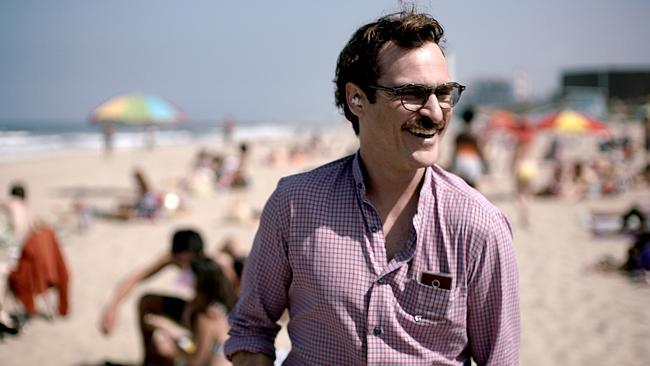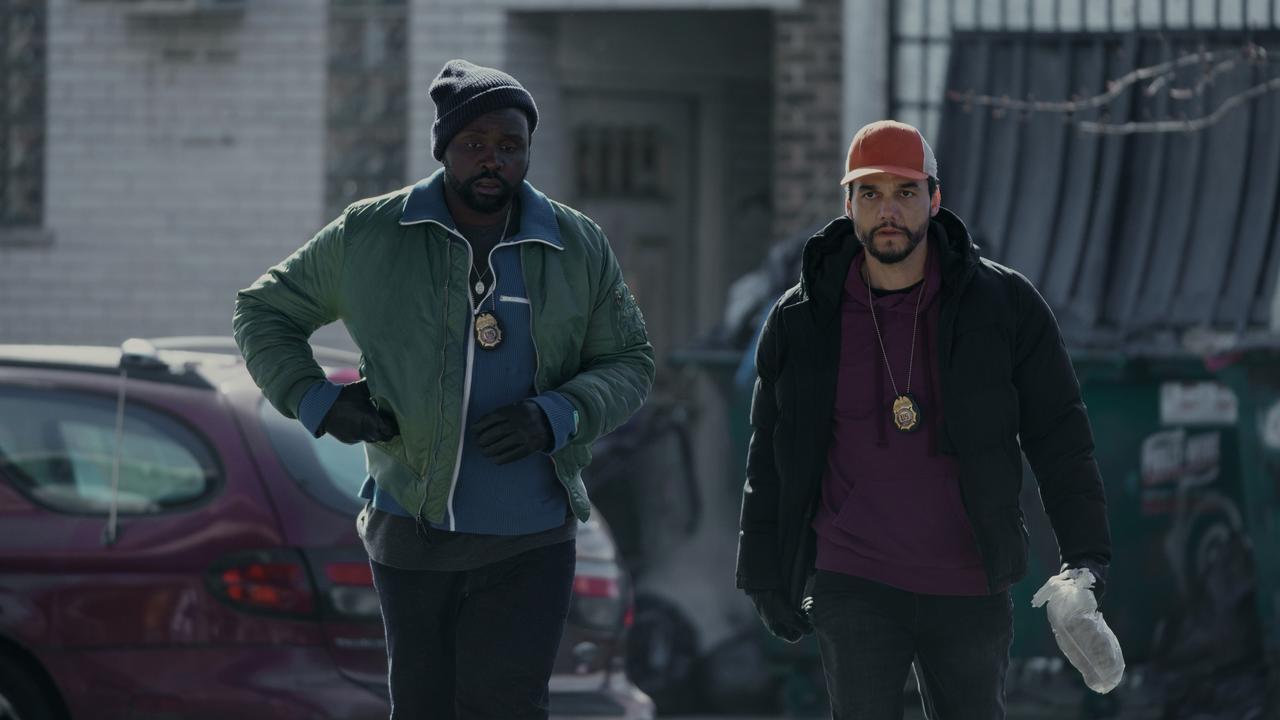Log on to love in Spike Jonze's film Her
SPIKE Jonze's Her is a strange, and strangely beautiful, love story for the computer age.

SPIKE Jonze's Her is a strange, and strangely beautiful, love story for the computer age. It's the story of a lonely man who falls in love with the operating system on his smartphone, and if that sounds too weird for words, remember that Jonze, who made his name directing music videos for Bjork, Beastie Boys, Fatboy Slim and others, started out as feature film director with Being John Malkovich (1999), in which protagonist John Cusack discovered a portal into the mind of actor Malkovich. That film and its equally original and compelling follow-up, Adaptation (2002), were scripted by Charlie Kaufman, but this time Jonze is working from his own original screenplay, and it's as fanciful as anything Kaufman dreamed up. What makes it the best American film seen in quite a while isn't just its all-too-believable exploration of the interaction between humans and their technology in the very near future but the fact that the drama works on a great many levels.
The story takes place in Los Angeles some time from now, though the exact year isn't specified. Theodore Twombly, played with just the right combination of awareness and vulnerability by Joaquin Phoenix, works for Beautiful HandwrittenLetters.com; he "writes" computer-generated "handwritten" letters, mostly love letters, for people nostalgic for a time when handwriting was the normal means of communication (probably the same people who cling to vinyl recordings). Theodore has recently separated from his wife, Catherine (Rooney Mara), but is close to his long-time best friend Amy (Amy Adams).
One of the many problems facing this lonely guy is that he's not very confident when it comes to dating: a blind date, with an attractive young woman played by Olivia Wilde, starts well but ends badly ("You're really a creepy date!"). It's only when Theodore acquires one of the first artificial intelligence operating systems, called Samantha and voiced by Scarlett Johansson, that his life changes for the better, because Samantha is everything he wants in a woman: she's smart, she's attentive, she's affectionate - she's practically human, as perfect as a female companion could possibly be, except that she's only a voice emanating from Theodore's phone. This world-first technology breakthrough is, it's claimed, "not just an operating system - it's a consciousness".
Samantha soon makes herself indispensable; after politely requesting to look through Theodore's hard drive, she advises him to save 86 files and delete the rest. She corrects his letters, sorts his contacts and even finds for him a human surrogate for herself (Portia Doubleday).
It says much for Jonze and his wonderful actors that he takes this decidedly offbeat premise and makes it seem completely real. Who would have thought a scene in which Theodore takes Samantha on a date, or introduces her to Amy, would have seemed so believable. Phoenix plays it absolutely straight, as does every member of the supporting cast. Clearly the casting of "Samantha" was of crucial importance, and it's intriguing that, for whatever reason, Johansson replaced Samantha Morton, the original voice, in post-production, as has been widely reported.
Her tackles some very basic themes, not least the nature of love and the increasingly important interaction between humans and the machines they've created. Cinema has been fascinated with the creation of robotic creatures at least as far back as Metropolis and Frankenstein, but the concept has usually involved some kind of threat, like the "replicants" in Blade Runner; the wonder of Jonze's extraordinary film is that he makes the love story so emotionally enthralling - and when you leave the cinema and see people on the street earnestly talking into their smartphones you may well think this soaring piece of imagination is closer to the truth of today's world than at first meets the eye.
Her (MA15+)
5 stars
National release from Thursday



